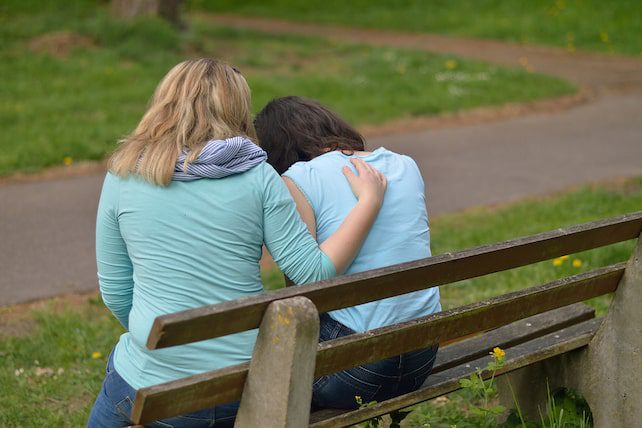 Witnessing a friend endure an emotionally painful situation can leave you feeling helpless, eager to offer support but uncertain about the best way to do so. Understanding how to help your friends metabolize their pain, process their grief, and prevent the experience from solidifying into trauma is not only a profound act of friendship but also a powerful way to contribute to their journey towards resilience, growth, and maturity. This article explores how you, as a supportive friend, can play a crucial role in your friends’ healing process.
Witnessing a friend endure an emotionally painful situation can leave you feeling helpless, eager to offer support but uncertain about the best way to do so. Understanding how to help your friends metabolize their pain, process their grief, and prevent the experience from solidifying into trauma is not only a profound act of friendship but also a powerful way to contribute to their journey towards resilience, growth, and maturity. This article explores how you, as a supportive friend, can play a crucial role in your friends’ healing process.
Acknowledge and Validate Their Feelings
Begin by acknowledging your friends’ pain and validating their feelings. It’s important for them to know that what they’re going through is real and that it’s okay to feel whatever they’re feeling. Avoid minimizing their emotions or offering cliché reassurances. Instead, offer a simple, “I’m here for you, and I’m truly sorry you’re going through this.” This acknowledgment can be the first step towards healing.
Be Present and Listen
Sometimes, the most powerful thing you can do is simply be there. Offer your presence, whether physically or virtually, and give your friends the space to express their emotions and thoughts. Active listening, without the urge to fix their problems, allows your friends to feel seen and heard, which is invaluable during times of emotional turmoil.
Encourage Expression in Comfortable Ways
Encourage your friends to express their feelings in ways they find comfortable, whether through talking, writing, art, or another form of expression. If they’re open to it, suggest journaling or engaging in creative activities like painting or music, which can serve as therapeutic outlets for their emotions.
Offer To Be Their ‘Wise Supportive Other’
Position yourself as a “wise other”—someone who offers empathy, understanding, and, when appropriate, guidance. You don’t have to have all the answers, but offering a perspective based on care, concern, and genuine desire to help can be incredibly beneficial. Remember, the goal isn’t to solve their problems but to support them in navigating their feelings and finding their path to healing.
Suggest Professional Help When Necessary
If you feel that your friends’ pain is overwhelming and they’re struggling to cope, gently suggest seeking professional help. A therapist or counselor can provide the support and tools needed to process grief healthily and prevent the experience from developing into trauma.
Encourage Building a Support Network
While your support is invaluable, encouraging your friends to build or lean on a broader support network can also be beneficial. This could mean connecting with other friends, family members, or support groups where they can share their experiences and feelings with those who understand or have gone through similar situations.
Promote Self-Care and Healthy Routines
Gently encourage your friends to engage in self-care practices and maintain healthy routines. Physical activity, adequate sleep, healthy eating, and mindfulness practices like meditation can significantly impact emotional well-being and resilience.
Be Patient and Give Them Time
Healing from emotional pain is a process that takes time. Be patient with your friends and understand that everyone’s journey to recovery is unique. There might be good days and bad days, and what they need from you can change over time. Continue to offer your support, understanding, and patience as they navigate their path towards healing.
Neuroscience–Dyadic Regulation & Meaning Making
Dyadic regulation and the process of engaging with a “wise other” (a person who can offer empathy, understanding, and guidance) play crucial roles in the processing of painful experiences and in preventing these experiences from becoming traumatic. These concepts are deeply rooted in psychological theories related to attachment, trauma, and emotional regulation. Here’s how they work together to facilitate healthy processing of pain and prevent overwhelm.
Dyadic Regulation
Emotional Co-Regulation
Dyadic regulation involves a shared emotional experience where one person helps another to regulate his or her emotional state. This process is critical in early childhood development but remains important throughout life. When faced with painful experiences, being in the presence of a trusted and emotionally regulated other can help to modulate one’s own emotional responses, preventing the nervous system from becoming overwhelmed.

